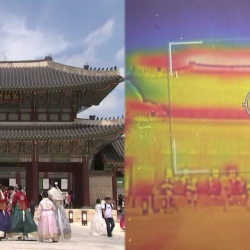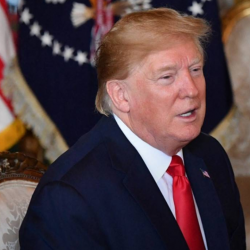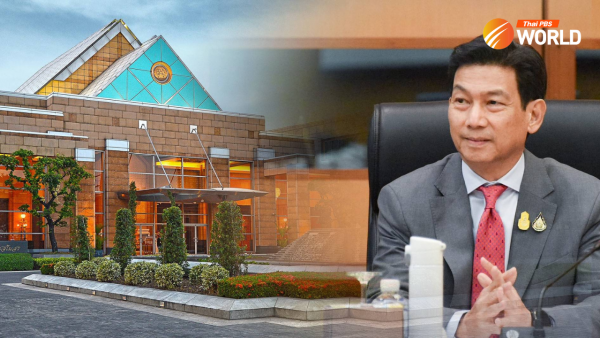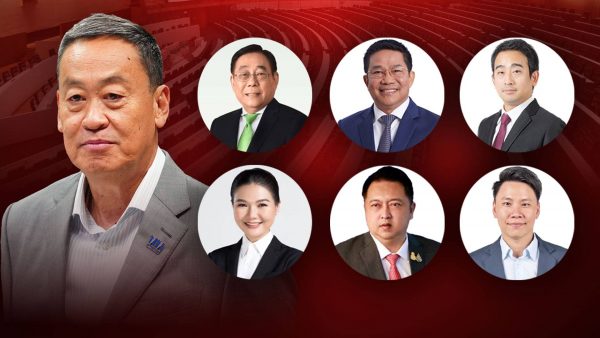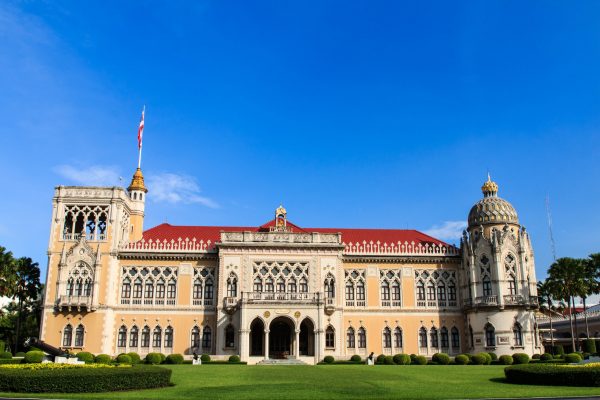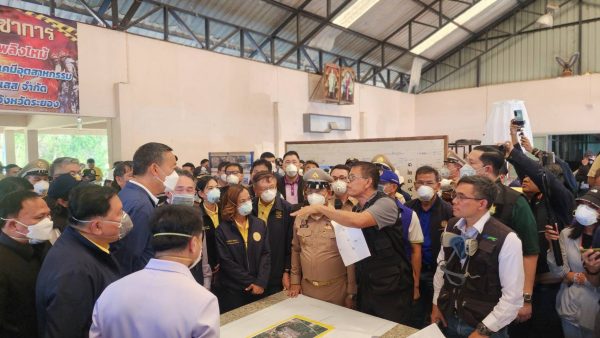Brief history of two frenemies
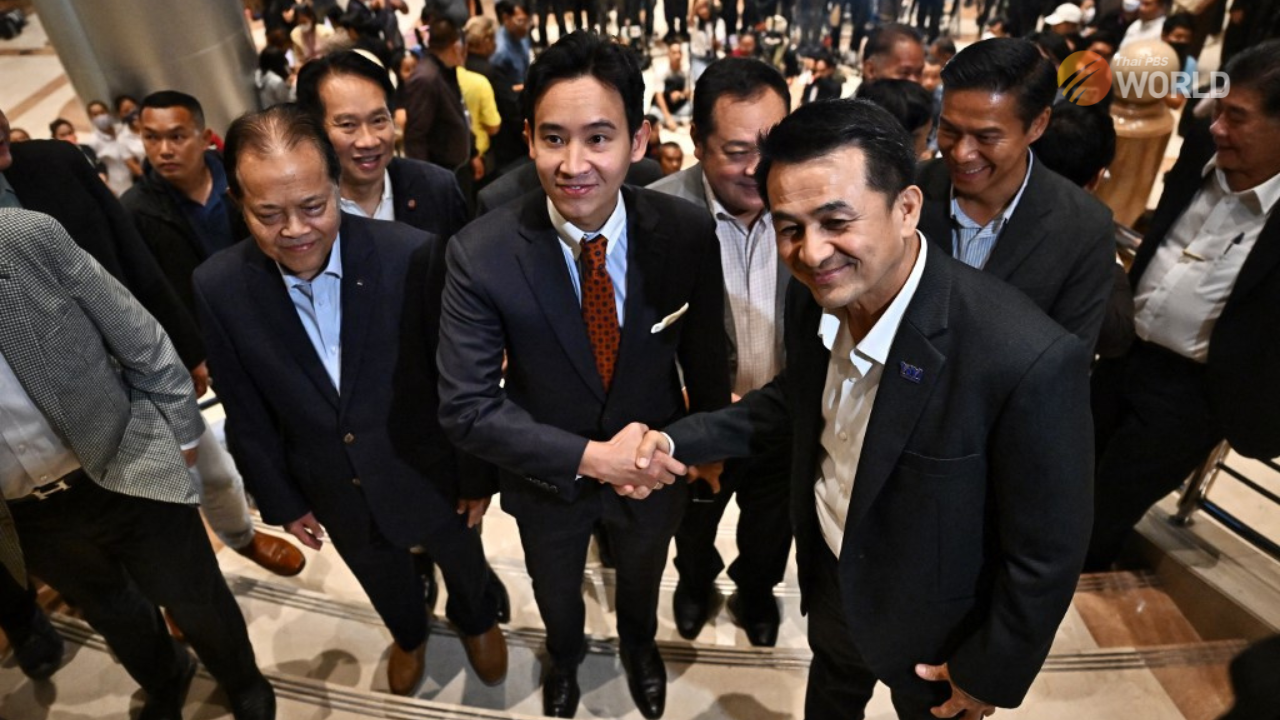
How fast the situation is changing. A few months ago, the Pheu Thai-Move Forward bond looked unbreakable, and just a few days ago, their smiling leaders were still posing together for selfies and reporters’ cameras, with heart hand gestures purportedly giving a public assurance that the alliance remained intact. Now Move Forward supporters are burning effigies at the Pheu Thai headquarters.
But how slow it has been if you want a new government. The next vote to select the new prime minister will take place after three months will have passed since the general election. Prayut Chan-o-cha’s “eight-year” fuss seems absurd now, even if the next joint sitting of Parliament can produce a prime minister right away.
Drifting apart they may have seemed, don’t rule out the possibility of Move Forward and Pheu Thai reuniting very soon. A theory has surfaced on a conspiracy of a deceptive split to get past the senatorial blockade and allow the two parties to become government friends later.
Yet the formerly-unthinkable scenario that Move Forward may have to settle alongside people it hates is looking increasingly possible at least for now. If it comes to that, the “We won’t be where the uncles are” election promise will need to be fine-tuned.
Adaptation will be needed all across the entire political landscape no matter how things pan out, though. Basically everyone, not just Move Forward, will have to be prepared to meet new friends, confront new enemies, and get used to the fast and furious nature of today’s politics. Anyone making a long-term plan without taking the extreme fluidity of things around them into account will end up a big loser.
The adjustment process will be agonizing and can be long. The Constitutional Court’s delayed decision on a “motion” to nominate Pita Limjaroenrat, the Pheu Thai-Move Forward peculiar estrangement, the Thaksin prolonged uncertainties, the ongoing soul-searching of the military-based status quo and all previously-unfathomable possibilities concerning the future government and opposition will keep everyone painfully on edge, including all Thais. The pain will affect all, whether they are political enthusiasts, or politically weary public, or business persons and foreign diplomats seeking peace, stability and clarity.
Everything is linked together in an insane web of interconnections. It can change every minute and yet everyone is waiting for everyone else to go first. On the one hand, the situation seems to be stretching boringly forever. On the other hand, you cannot blink.
If a Pheu Thai government includes one or more of the “uncles” parties, absolute adjustment will be required of everybody. If Move Forward has one or more of the “uncles” parties in the opposition’s “alliance”, that can be an equally-awkward situation.
On the bright side, the “colours” are mixing. Bad news is that the process can be too slow for our liking. The country’s political divide used to simply have “Red” on one side and “Yellow” on the other, but just before the 2019 general election, “Orange” emerged. It allied itself with “Red”, while “Yellow” became their common enemy but arguably more diversified. The protesters rising up against the “Red” Yingluck government called themselves “mob of a variety of colours”.
Even Red and Orange went through a soul-searching. Believe it or not, they used to quarrel over who between them should be labelled “Salim Phase 2”. The word “Salim” was what the Yellow was called, referring, according to Wikipedia, to “people who are sceptics of democracy and support the military’s involvement in politics.”
The Red-Orange war of words began soon after the Orange was born, when a pro-Red writer and celebrity, Lakkhana Panwichai, better known as “Kam Phaka” described the Orange movement as “Salim Phase 2”. The back-and-forth argument focused on how one Thaksin Shinawatra should be regarded. Simply put, the perception at that time appeared to be that Red was “pro-Thaksin” and “anti-military”, Yellow was “anti-Thaksin” and “pro-military”, while “Salim Phase 2” was “anti-Thaksin” and “anti-military”.
Kam Phaka was possibly accusing the Orange of a holier-than-thou attitude, as the movement’s young age means far fewer corruption controversies. “Salim Phase 2” was virtually a movement that could not stand “non-democratic intervention” in politics but could not bring itself to support corrupt politicians either. This was unacceptable to many Red Shirts because they regarded the Shinawatra family as economically and socially able, regardless of ethical flaws.
But look who are set to blend the colours. If Pheu Thai becomes the government and ditch Move Forward in the process, the latter will remain the unbendable extremist and the former will have compromised its own “pro-Thaksin, anti-military” stand and accepted the rules it always decried in the process.
The writing was always on the wall, as Orange and Red had to fight for the same political market and the former won the May 14 election at a devastating expense of the latter. The alliance had been based on the assumption that Move Forward would play a second fiddle, not the lead violinist. When that is no longer the case, the orchestra is in danger of breaking apart.
Yet take away all the charges of a Pheu Thai “betrayal” or stabbing voters in the back, should Thailand’s political divide become less intense and confrontational? The answer is a no-brainer.
Which brings us to the bad news: The mixing of the colours, if it happens, will be really long and things can get really bad before they can get better.
By Tulsathit Taptim

